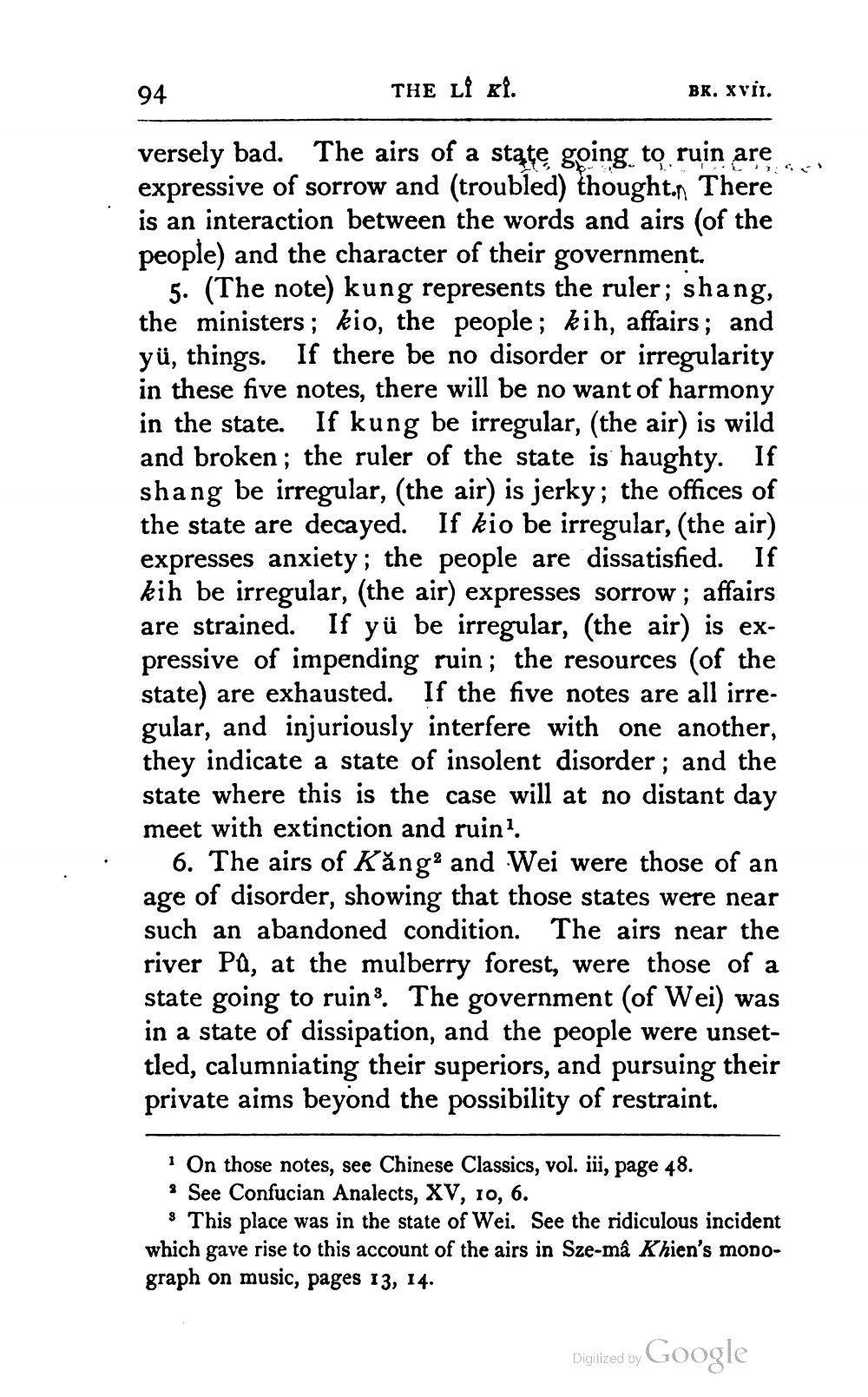________________
94
THE LÎ ki.
BR. XVII.
versely bad. The airs of a staţe, going to ruin are expressive of sorrow and (troubled) thought.n There is an interaction between the words and airs (of the people) and the character of their government.
5. (The note) kung represents the ruler; shang, the ministers; kio, the people; kih, affairs; and yü, things. If there be no disorder or irregularity in these five notes, there will be no want of harmony in the state. If kung be irregular, (the air) is wild and broken; the ruler of the state is haughty. If shang be irregular, (the air) is jerky; the offices of the state are decayed. If kio be irregular, (the air) expresses anxiety; the people are dissatisfied. If kih be irregular, (the air) expresses sorrow; affairs are strained. If yü be irregular, (the air) is expressive of impending ruin; the resources (of the state) are exhausted. If the five notes are all irregular, and injuriously interfere with one another, they indicate a state of insolent disorder; and the state where this is the case will at no distant day meet with extinction and ruin?.
6. The airs of Kånga and Wei were those of an age of disorder, showing that those states were near such an abandoned condition. The airs near the river Pů, at the mulberry forest, were those of a state going to ruins. The government (of Wei) was in a state of dissipation, and the people were unsettled, calumniating their superiors, and pursuing their private aims beyond the possibility of restraint.
On those notes, see Chinese Classics, vol. iii, page 48. * See Confucian Analects, XV, 10, 6.
$ This place was in the state of Wei. See the ridiculous incident which gave rise to this account of the airs in Sze-mâ Khien's monograph on music, pages 13, 14.
Digitized by Google




